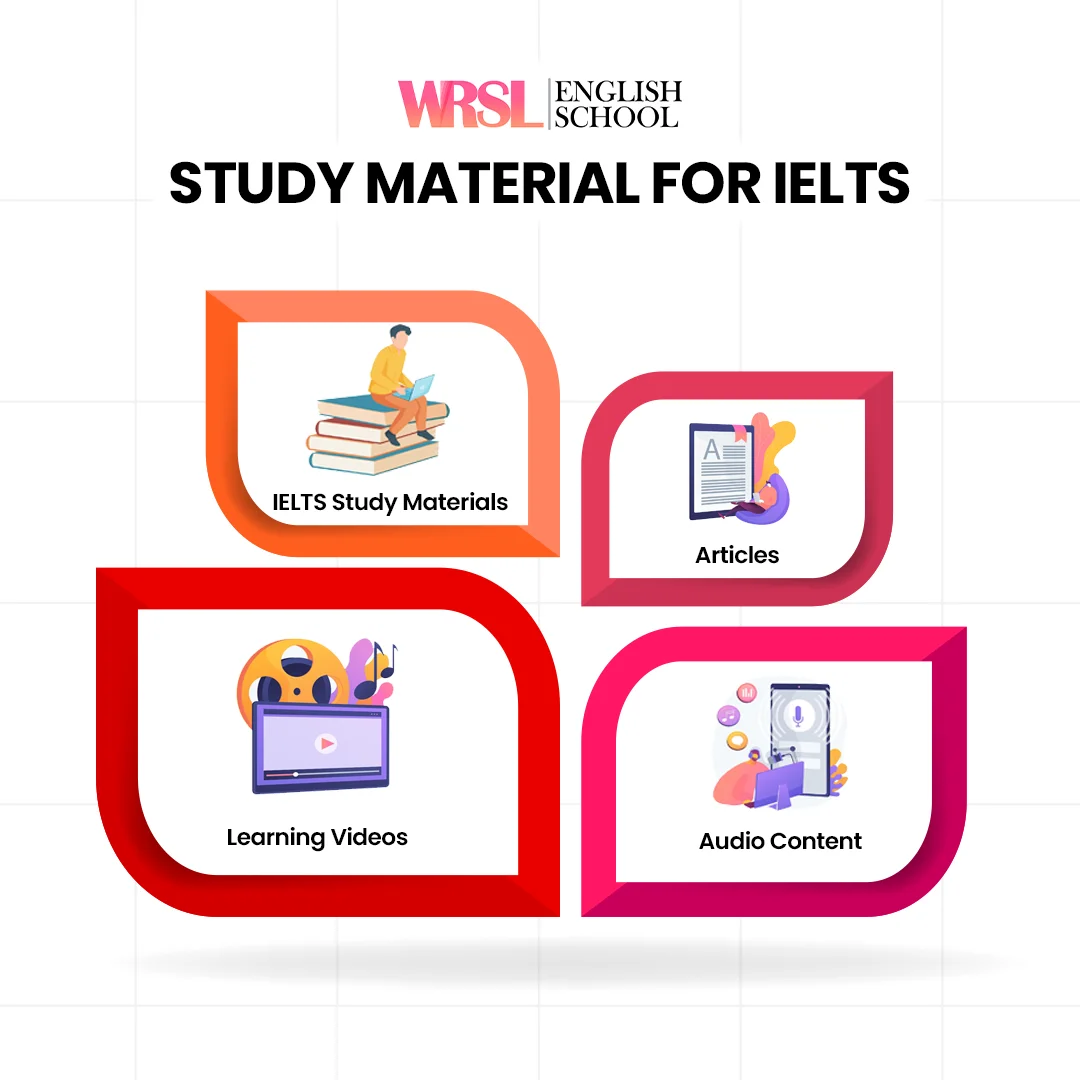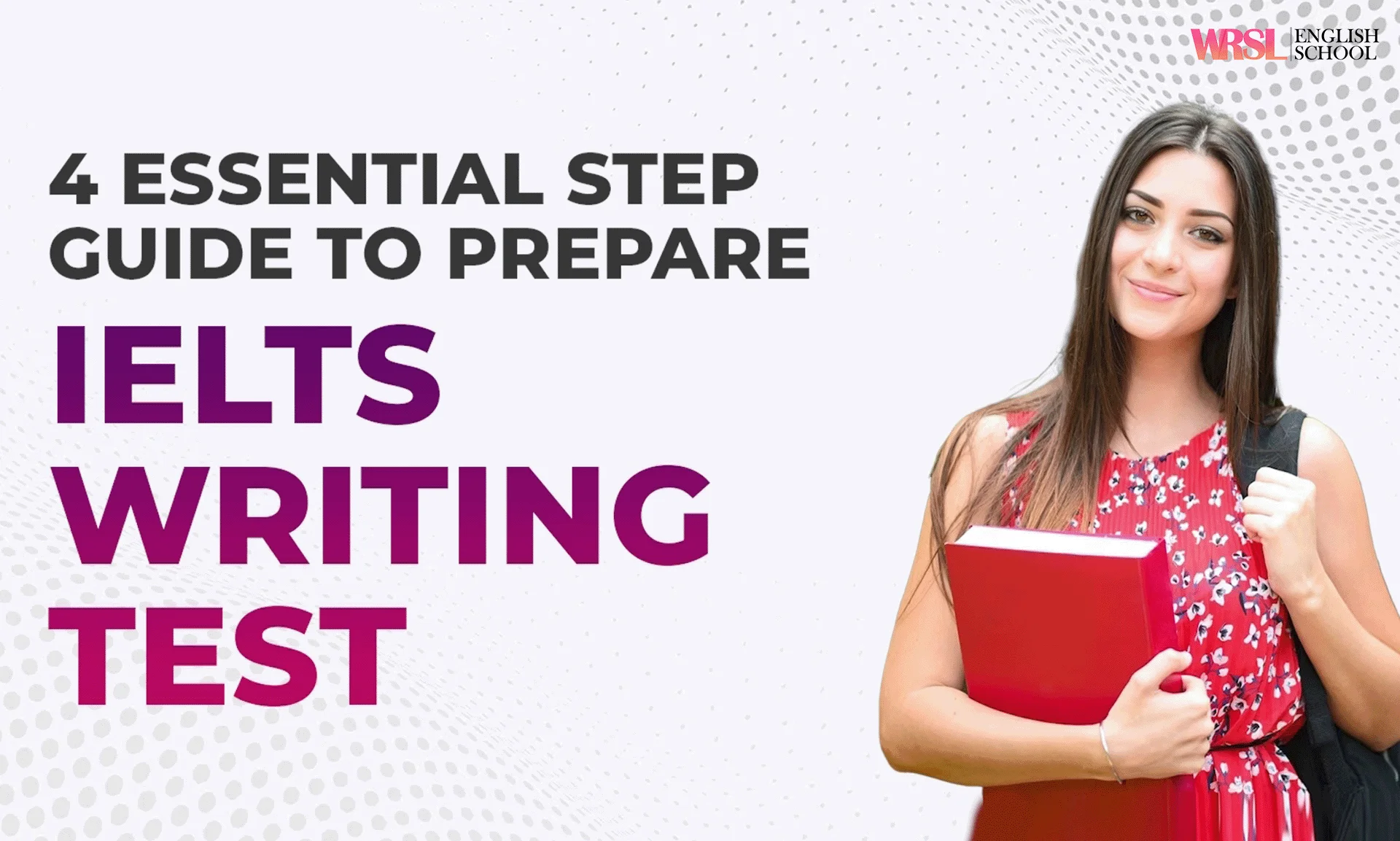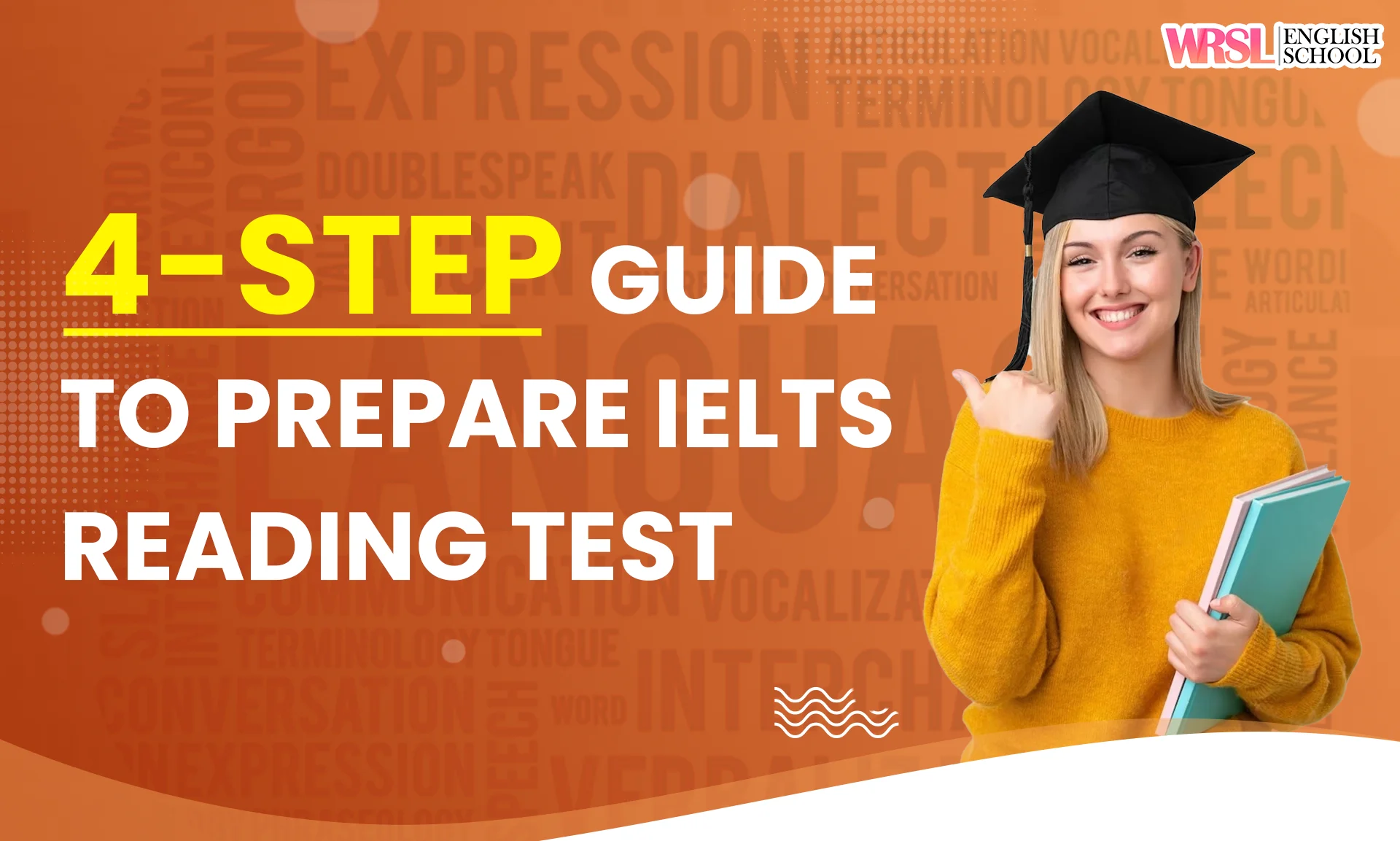Tags : ielts-study-material ielts-score ielts-training
Author: Pragya MishraAn individual's English language competency is evaluated by the International English Language Testing System (IELTS), an exam accepted worldwide. To pursue higher education in an English-speaking nation, look for a job abroad, or submit an immigration application, you must pass the IELTS exam with a high score. This in-depth post will examine the top ten IELTS practice resources for speaking, listening, reading, writing, vocabulary, and grammar to assist you on your path to success.
Additionally, we will offer insightful advice on choosing the practice materials best suited to your requirements and how to use them efficiently to increase your likelihood of scoring highly on the IELTS exam.
IELTS Listening Practice:
1. Importance of Listening Practice for the IELTS Exam:
The listening section of the IELTS exam evaluates your ability to comprehend spoken English in various accents and contexts. This skill is vital not only for the listening section but also for understanding instructions in other sections and reading passages.
2. Recommended Websites and Resources for Improving Listening Skills:
To enhance your listening skills, consider using resources from reputable websites such as the British Council's official IELTS page, IELTS Liz, and Road to IELTS. These platforms offer practice tests, audio samples, and exercises that will help you become more proficient in understanding spoken English.
IELTS Speaking Practice:
1. Enhancing Speaking Skills through Regular Practice and Interaction:
The speaking section of the IELTS exam assesses your ability to communicate fluently and coherently in English. To improve your speaking skills, converse regularly with language exchange partners or native English speakers.
2. Websites to Find Language Exchange Partners and Speaking Topics:
Online platforms like Cambly and Tandem connect language learners with native speakers for language exchange. Additionally, official IELTS websites provide cue cards and speaking topics, allowing you to practice speaking on various subjects.
IELTS Reading Practice:
1. How to Improve Reading Speed and Comprehension for the IELTS Exam:
The reading section of the IELTS exam requires you to read and understand various texts. To improve reading speed and comprehension, practice regularly with diverse reading materials.
2. Top Sources for Authentic IELTS Reading Practice Materials:
Consider using the Cambridge IELTS practice test books (1-15), which contain actual exam papers for authentic IELTS reading practice. The British Council and IELTS Liz websites also offer reading exercises and tips to enhance your reading skills.
IELTS Cue Card Topics:
1. Understanding the Cue Card Segment of the Speaking Section:
In the speaking section of the IELTS exam, you will encounter cue card topics that require you to speak on a given subject for a specific time. Understanding the cue card format and content expectations is essential for excelling in this part.
2. Websites Offering a Wide Range of Cue Card Topics and Tips:
Websites like IELTS Cue Card and IELTS Mentor provide an extensive collection of cue card topics and essential tips to help you prepare and deliver effective responses.
IELTS Practice Tests:
1. The Importance of Full-Length Practice Tests for Exam Preparation:
Taking full-length IELTS practice tests is crucial for simulating the actual exam experience. These tests familiarize you with the test format, time constraints, and question types.
2. Recommended IELTS Practice Test Books and Online Resources:
The Cambridge IELTS practice test books (1-15) offer authentic exam papers for comprehensive practice. Additionally, the official IELTS website provides free sample tests for all sections.
IELTS Sample Answers:
1. Analyzing Sample Answers to Understand Examiner Expectations:
Reviewing sample answers from successful test-takers provides insights into the examiner's expectations. This helps you understand what constitutes a well-structured and high-scoring response.
2. Accessing Resources with Model Answers for Writing and Speaking Tasks:
Websites like IELTS Online Tests and IELTS-Blog offer a collection of sample answers for writing and speaking tasks. Utilize these resources to gain a better understanding of the required response format.
IELTS Essay Topics:
1. Developing Essay Writing Skills for the Writing Section of the IELTS Exam:
The writing section assesses your ability to present ideas coherently and effectively in essay form. Regular essay writing practice is essential to enhance your writing skills.
2. Websites Providing Essay Topics and Model Answers for Practice:
Resources like IELTS Material and IELTS Mentor offer a wide range of essay topics and model answers to help you understand the key components of a high-scoring essay.
IELTS Vocabulary:
1. The Significance of Building a Strong Vocabulary for the IELTS Exam:
A rich vocabulary is crucial for performing well in all sections of the IELTS exam. Regularly expand your word bank to improve your language proficiency.
2. Recommended Websites and Tools for Expanding Your Word Bank:
Platforms like Magoosh and Quizlet offer vocabulary lists, flashcards, and quizzes to help you learn and retain new words effectively.
IELTS Grammar:
1. Targeting Specific Grammar Rules Tested in the IELTS Exam:
The IELTS exam evaluates your grasp of English grammar. To improve your performance, focus on specific grammar rules that are commonly tested.
2. Online Platforms Offering Comprehensive Grammar Lessons and Quizzes:
Websites like Grammarly and Perfect English Grammar provide detailed lessons and quizzes targeting specific grammar concepts.
IELTS Tips:
1. Valuable Advice and Strategies from IELTS Experts for Success:
Learning from the experiences and advice of IELTS experts can provide valuable insights and techniques to enhance your performance in the exam.
2. Learning from the Experiences of High-Scoring Test-Takers:
Websites like IELTS-Blog and IELTS Advantage often feature success stories and tips from test-takers who have achieved high scores. Gain inspiration and valuable pointers from their experiences.
How to Find the Right IELTS Practice Materials for You
1. Considering Reputation, Credibility, and Source When Choosing Materials:
To ensure the quality of IELTS practice materials, opt for resources from reputable sources such as the British Council, Cambridge, or IDP —the organizations that co-own the IELTS exam.
2. Seeking Expert Guidance and User Reviews for Reliable Recommendations:
Look for materials recommended or endorsed by IELTS experts or experienced tutors. Additionally, read user reviews and testimonials to gauge the effectiveness of the practice materials.
3. Evaluating Content Coverage and Compatibility with Your Learning Style:
Choose IELTS practice materials that comprehensively cover all sections of the exam you wish to focus on. Consider your learning preferences, such as interactive lessons, practice tests, or video tutorials.

4. Weighing the Pros and Cons of Free Versus Paid Materials:
While many free IELTS practice materials are available online, some platforms offer premium content at a cost. Consider whether the paid materials offer significant value over the free alternatives and if they align with your budget.
Use IELTS Practice Materials Effectively
- Creating a Structured Study Schedule for Consistent Practice:
- Tracking Progress through Regular Mock Tests and Self-Assessment:
- Simulating Test Conditions to Improve Time Management and Focus:
- Reviewing and Analyzing Mistakes to Identify Areas of Improvement:
- Seeking Feedback from Teachers or Language Experts for Speaking and Writing Tasks:
- Maintaining Motivation and Persistence Throughout Your Preparation:
Develop a study plan that allocates specific time slots for each section of the IELTS exam. Consistency in practice is key to improvement. Set realistic study goals and ensure you adhere to your schedule.
Take mock tests regularly to assess your performance and track your progress. Analyze your results and identify areas that require improvement. Use your mistakes as learning opportunities and focus on strengthening those areas.
When taking practice tests, create an exam-like environment to simulate test conditions. Set a timer and avoid distractions to improve time management and concentration during the exam.
After each practice session, thoroughly review your answers and understand why you made specific mistakes. This analysis will help you identify recurring errors and work on rectifying them.
See feedback from qualified language instructors or IELTS experts. Constructive feedback can provide valuable insights into your speaking and writing performance, helping refine your skills.
IELTS preparation can be challenging and time-consuming, but staying motivated and persistent is crucial. Set short-term milestones and reward yourself when achieving them to keep your spirits high.
Conclusion:
The correct collection of practice materials and commitment are required for IELTS exam preparation. Your chances of getting a high score can greatly increase by using the top 10 IELTS practice tools for vocabulary, grammar, reading, speaking, and listening. Always look for practice materials that fit your preferred learning style and use them appropriately. Set attainable goals, track your progress, and ask for criticism to strengthen your areas of weakness. You can be successful in your quest to improve your English language skills and do well on the IELTS exam if you are persistent and have a positive outlook.
FAQ
Reputable sources like the British Council and Cambridge materials are highly recommended. Websites like IELTS Liz, Road to IELTS, and IELTS Mentor offer valuable resources for practice.
Consider factors such as reputation, expert guidance, user reviews, content coverage, and compatibility with your learning style. Experiment with different resources to determine which ones suit your needs best.
Consider factors such as reputation, expert guidance, user reviews, content coverage, and compatibility with your learning style. Experiment with different resources to determine which ones suit your needs best.
Common mistakes on the IELTS exam include:
- Poor time management.
- Misinterpretation of instructions.
- Neglecting grammar and vocabulary.
- Not practising with authentic materials.








